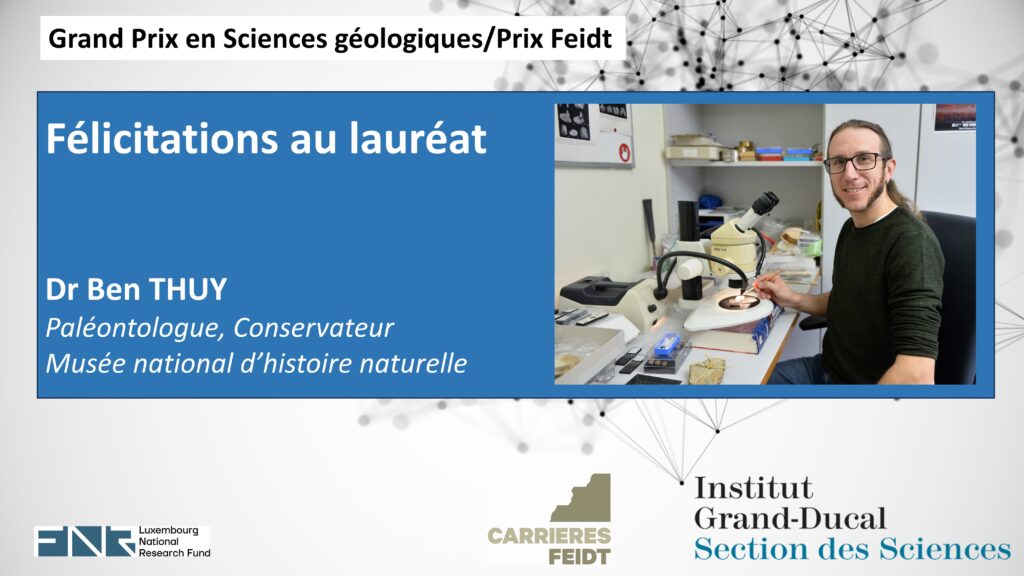In cooperation with the FNR and several private sponsors, the ‘Section des Sciences Naturelles, physiques et mathématiques de l’Institut Grand-ducal’ is pleased to announce the 2022 Grand Prix en Sciences de l’Institut Grand Ducal / Prix Feidt, this year being awarded in the domain of geology, will be awarded to paleontologist Ben Thuy from the Musée national d’histoire naturelle (MNHN). The prize will be awarded at a ceremony on 18 November 2023.

Since 2010, the Institut grand-ducal has awarded each year a researcher (m/f) for either their complete work or an exceptional discovery in the fields of biology, chemistry, geology, mathematics and physics. To be eligible for the award, the researcher (m/f) must be of Luxembourgish nationality or a researcher working or having worked in the Grand-Duchy of Luxembourg with the major part of his/her scientific work and international publications done in the Grand-Duchy. The prize is currently endowed with 5.000 EUR and is awarded during an academic session at the end of the year.
The 2022 prize is dedicated to the field of geology and is called after its sponsor, “Prix Feidt”.
About Ben Thuy
Dr Ben Thuy specialises in the study of echinoderm fossils [Echinoderms are a group of marine invertebrates, including sea urchins and starfish, which includes more than 6,000 species. They are animals that live on the seabed. They form a very ancient phylum, which appeared more than 530 million years ago. Echinoderms have a more or less rigid internal calcareous skeleton and a pentarad symmetry of order 5]. Dr Ben Thuy’s studies have made a significant contribution to our understanding of the particularly fragile plates that form the skeleton of a group of echinoderms closely related to starfish, the ophiuroids, thus paving the way for systematic and even phylogenetic studies of the microfossils of these organisms.
Ben Thuy won an FNR Award in the category Outstanding Scientific Publication in 2018.